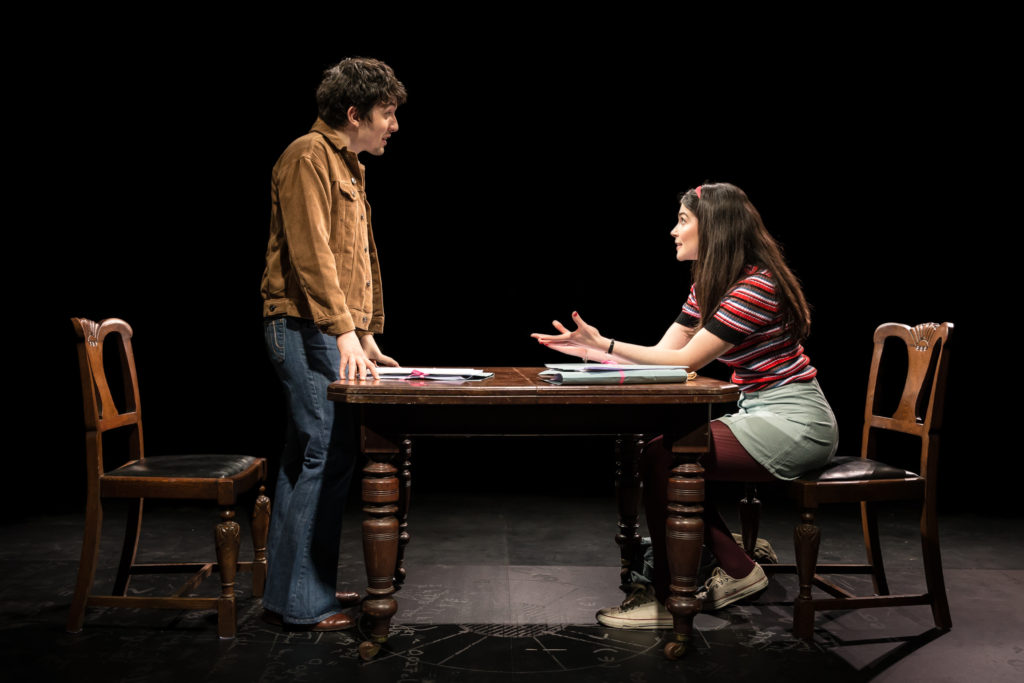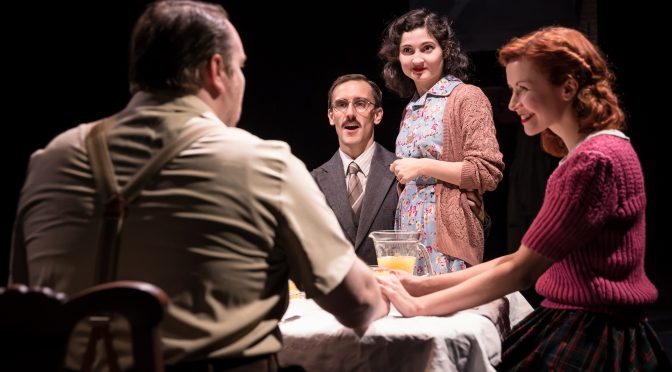Inspired by the case of Ethel and Julius Rosenberg, who were executed for treason in 1953, James Phillips’ play about politics and betrayal is a weighty drama. Creating a fictional parallel to real life events focuses the themes of individual responsibility and ideology. Setting the action over three decades allows an extrapolation on the legacy of events. This new production from director Joe Harmston makes the most of viewing two generations – the traitors and their children – resulting in a strong revival of a rich and complex play.
Harmston’s direction is luxurious. It feels as if equal time is given to the three couples: Jakob and Esther Rubenstein, her brother David and his wife Rachel and also their heirs, Matthew and Anna. The stories mingle effectively. Harmston might make a little too much fuss over scene changes and his traverse staging add less than desired but the issues of loyalty and hope are clear, while justice is done to a text full of argument and emotion. Best of all, Harmston has secured tremendous performances from his cast.
Ruby Bentall and Henry Proffit play the lead couple and inject an impressive energy into their political discussions. Sean Rigby takes the part of Esther’s brother and betrayer. Rigby develops his role well as the character becomes “haunted” by unwanted fame and he is ably supported by Eva-Jane Willis as Rachel who is consistently superb. The four are convincing as a family unit and the love each couple have for one another is utterly compelling. It’s a bit of a puzzle why the younger roles end up in a sexual relationship as well, surely an unnecessary complication? Nonetheless, Katie Eldred saves her weaker written character of Anna, whose suicide attempt is poorly handled by Phillips. And Dario Coates is excellent as Matthew, the impassioned son of the Rubensteins, who decides to fight to clear the family name.

The influence of Arthur Miller and his McCarthy inspired 1953 drama The Crucible lies heavy on the text – it is explicitly referenced and cerebrally employed. Proffit makes Jakob a powerful surrogate for Miller’s hero John Proctor. Stephen Billington’s FBI Agent, who interrogates and then tries to save Jakob and Esther, is an efficient take on the previous play’s Reverend Hale and points us towards interesting questions. The fanatics vision is brought into focus; Bantall’s eyes as she faces her martyrdom in the electric chair are mesmerising. Phillips appreciates that the “gift of empathy”, discussed as an inspiration that can cross generations, is also a danger and can be poisonous. The Rubenstein Kiss provides salutary insight reached through care and intelligence.
Until 13 April 2019
Photos by Scott Rylander

